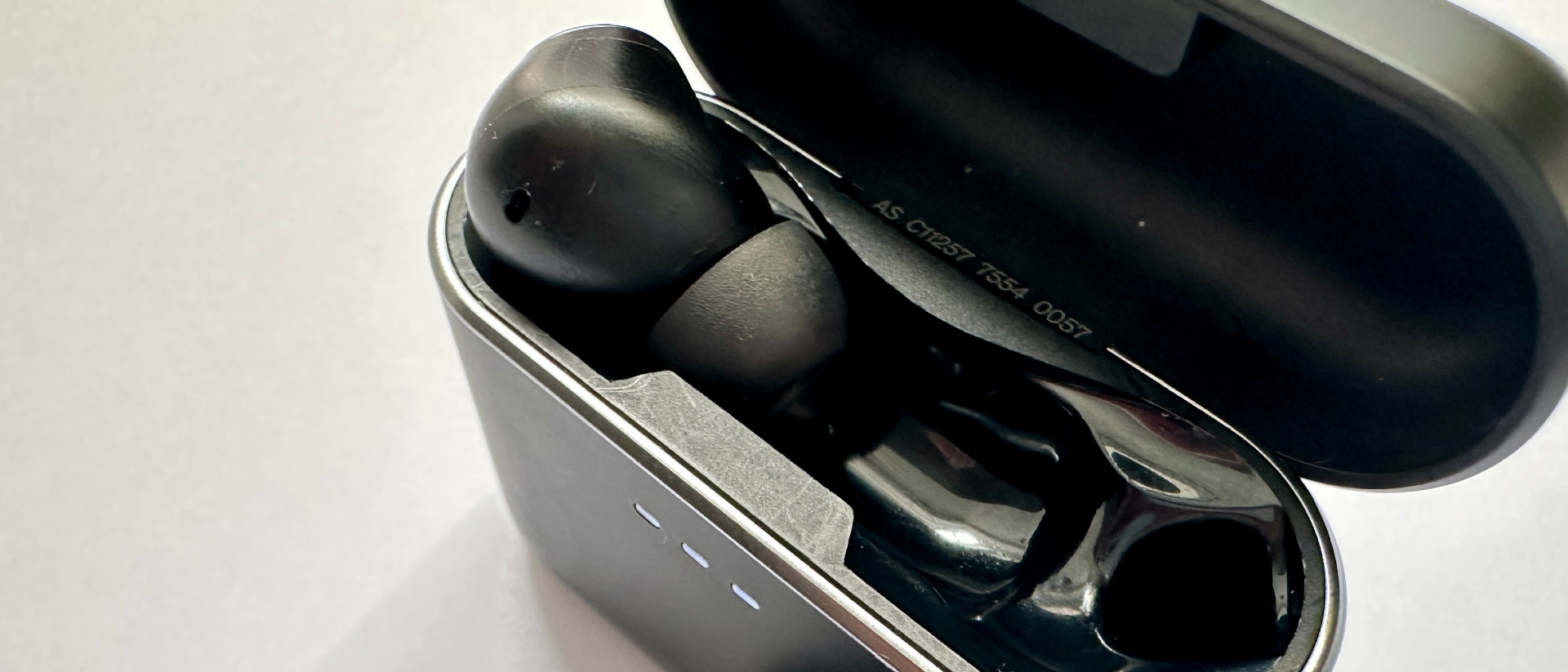TechRadar Verdict
It’s not every day that a product priced to compete squarely in the mainstream arrives with so few apparent compromises – but today’s that day and the Cambridge Audio Melomania A100 is that product. In every respect (build quality, specification and, especially, performance) these earbuds outperform their asking price to a remarkable degree. Highly recommended.
Pros
- +
Expressive, energetic and enjoyable sound
- +
Great specification at the price
- +
Effective noise-cancellation
Cons
- -
Low frequencies can sound fractionally estranged
- -
Very worthwhile price-comparable alternatives
Why you can trust TechRadar
Cambridge Audio Melomania A100: two-minute review
Until now, Cambridge Audio’s TWS earbuds efforts have been ‘pretty good’ – but this is a market in which ‘pretty good’ tends not to be good enough. And so the company is back with what is quite obviously a very concerted effort, in the shape of the new Melomania A100.
Here, $149 / £119 or its regional equivalent buys a pair of true wireless in-ears that travel in a very neat charging case, that follow the ‘stem’ style of design and that can be had in black or white finishes. It also buys high specification (Bluetooth 5.4 wireless connectivity with LDAC and aptX Lossless codec compatibility, Class AB amplification, nearly 40 hours of battery life, 10mm Neodymium dynamic drivers) that you’d be glad to see on a product costing twice as much. And by way of an encore, it buys a raft of control options that include an endlessly entertaining appearance by Matt Berry. Some of the best noise-cancelling earbuds around? And perhaps even some of the best earbuds irrespective of noise-nixing, then? For sure.
Most of all, though, money put Cambridge Audio's way for these particular buds buys insightful, controlled and thoroughly entertaining sound. The A100 manage to combine levels of insight that are the best around in this market with an energetic and engaging attitude that makes the description ‘musical’ entirely valid.
As far as value for money is concerned, not to mention a thoroughly enjoyable audio experience, the Melomania A100 are currently there to be shot at.
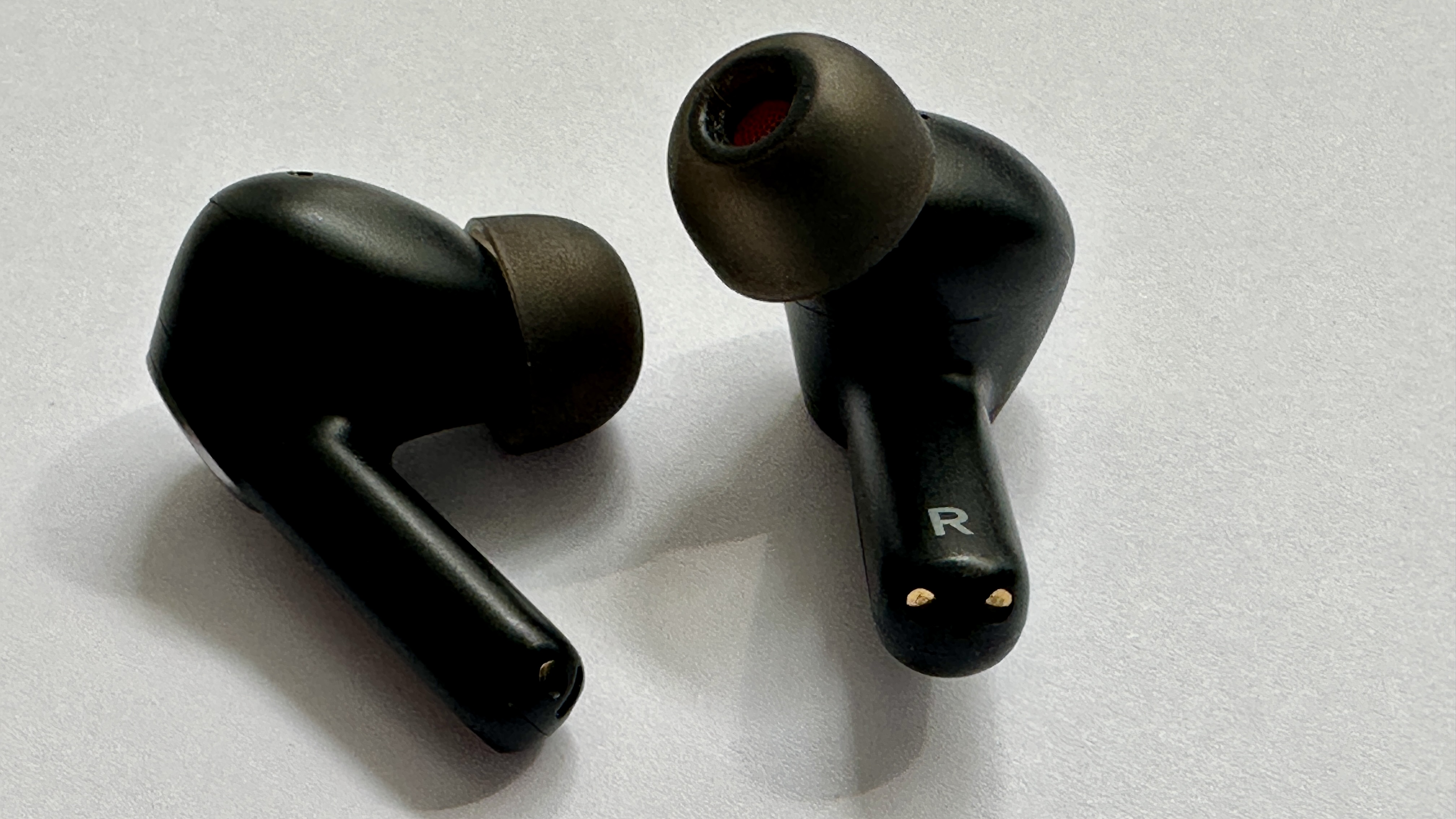
Cambridge Audio Melomania A100 review: Price and release date
- Release date: June 26, 2025
- Price: $149 / £119 / AU$TBC (but around AU$249)
At the time of writing this review, the Cambridge Audio Melomania A100 wireless in-ear headphones are on sale from today (June 26, 2025) and in the United Kingdom they cost £119. The price in the United States is $149, and while no Australian pricing is confirmed as yet, it seems something around AU$249 is likely.
It’s an aggressive price from a company that’s most recently been making waves with equipment a fair bit further up the food chain, but that’s not the same as saying the A100 are without serious competition. Sony (another brand that can hold its own at the high end) will sell you a pair of its very accomplished Sony WF-C710N buds for pennies less than £100, just as a ‘for instance’. So these earbuds have to do a bit more than show up wearing an attractive price to get a seat at the top table…
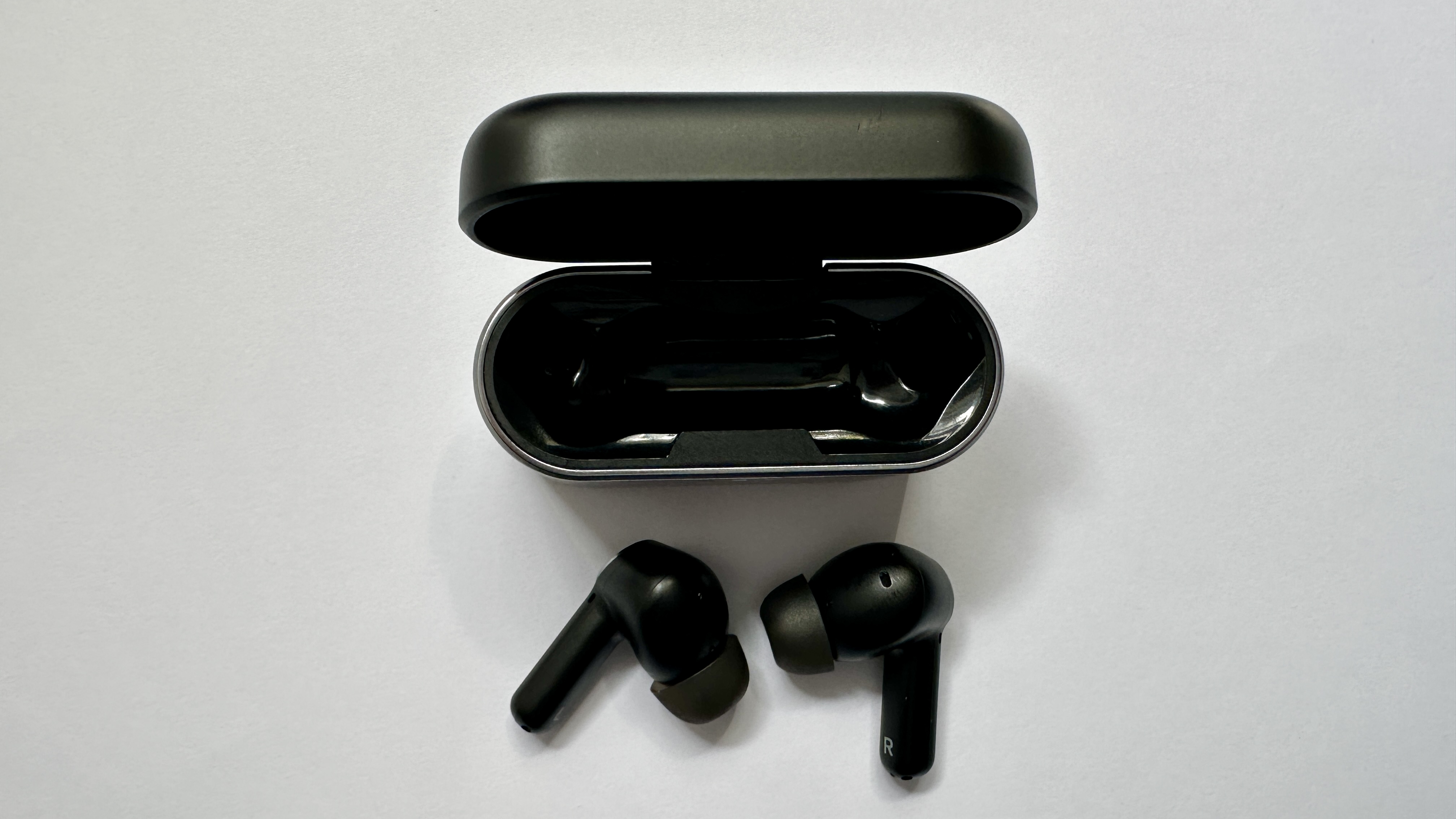
Cambridge Audio Melomania A100 review: Specs
Weight: | 4.7g per earbud |
Drivers: | 10mm Neodymium dynamic |
Battery life: | 11 hours per charge; up to 39 hours with the case |
Bluetooth: | 5.4 with LDAC and aptX Lossless |
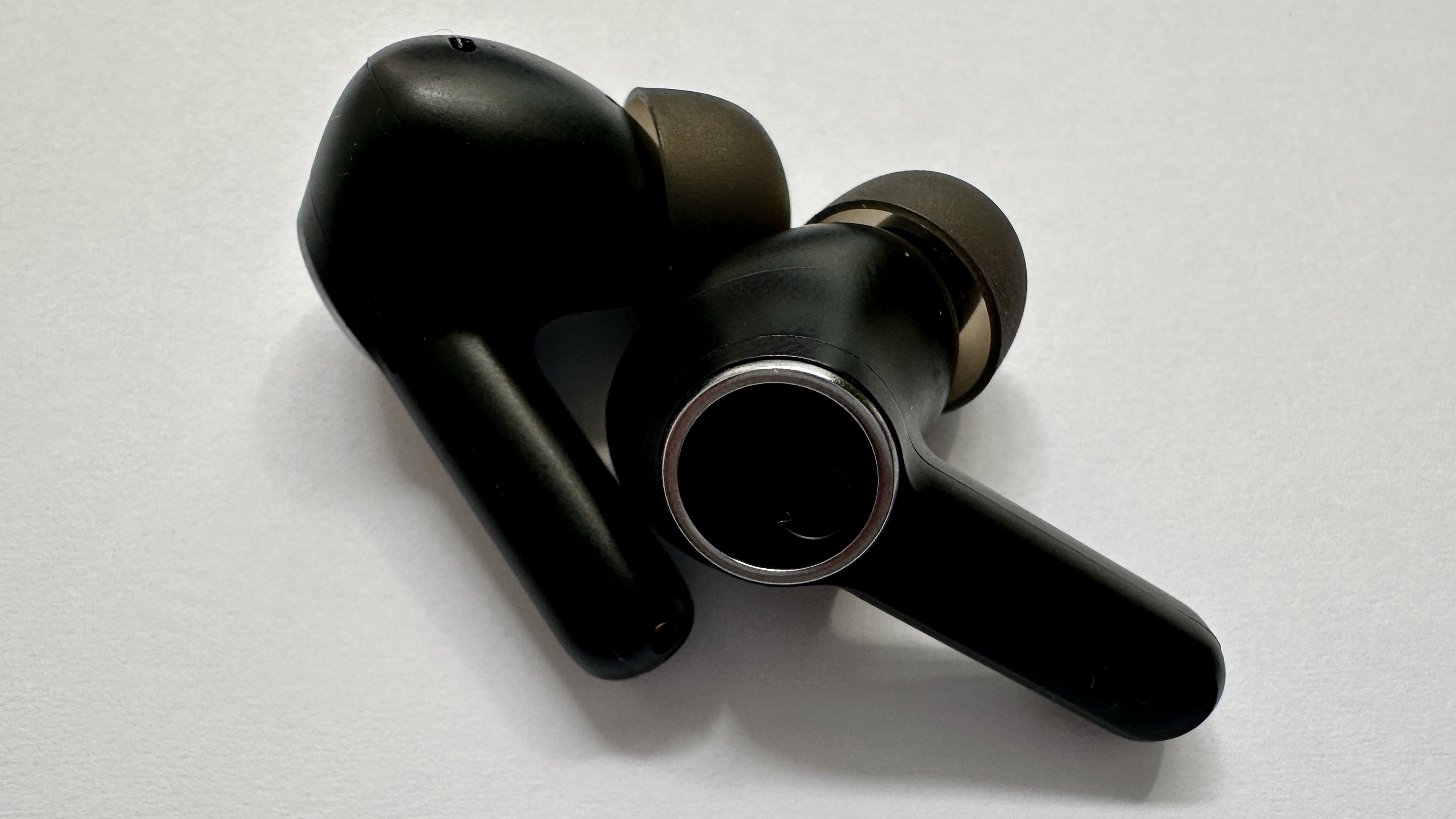
Cambridge Audio Melomania A100 review: Features
- Bluetooth 5.4 with aptX Adaptive, aptX Lossless and LDAC
- Six-mic array for ANC and call-handling
- Class AB amplification; 10mm Neodymium dynamic drivers
In the context of the asking price, the Melomania A100 are very impressively specified indeed. There are true wireless earbuds costing plenty more than this that don’t look as good on the page.
For example, the Cambridge Audio use top-of-the-shop Bluetooth 5.4 for wireless connectivity, and are compatible with aptX Adaptive, aptX Lossless and LDAC codecs. Multipoint connectivity is available too, and the array of six mics that handle noise-cancellation, telephony and voice-assistant interaction are bolstered by Clear Voice Capture echo-cancelling and noise suppression.
There’s Class AB amplification on board, an unarguable step up from the Class D alternative that’s way more common in products like this. A dual-core Qualcomm Kalimba DSP minimises distortion and maximises clarity, and a pair of 10mm Neodymium drivers serve up the sound.
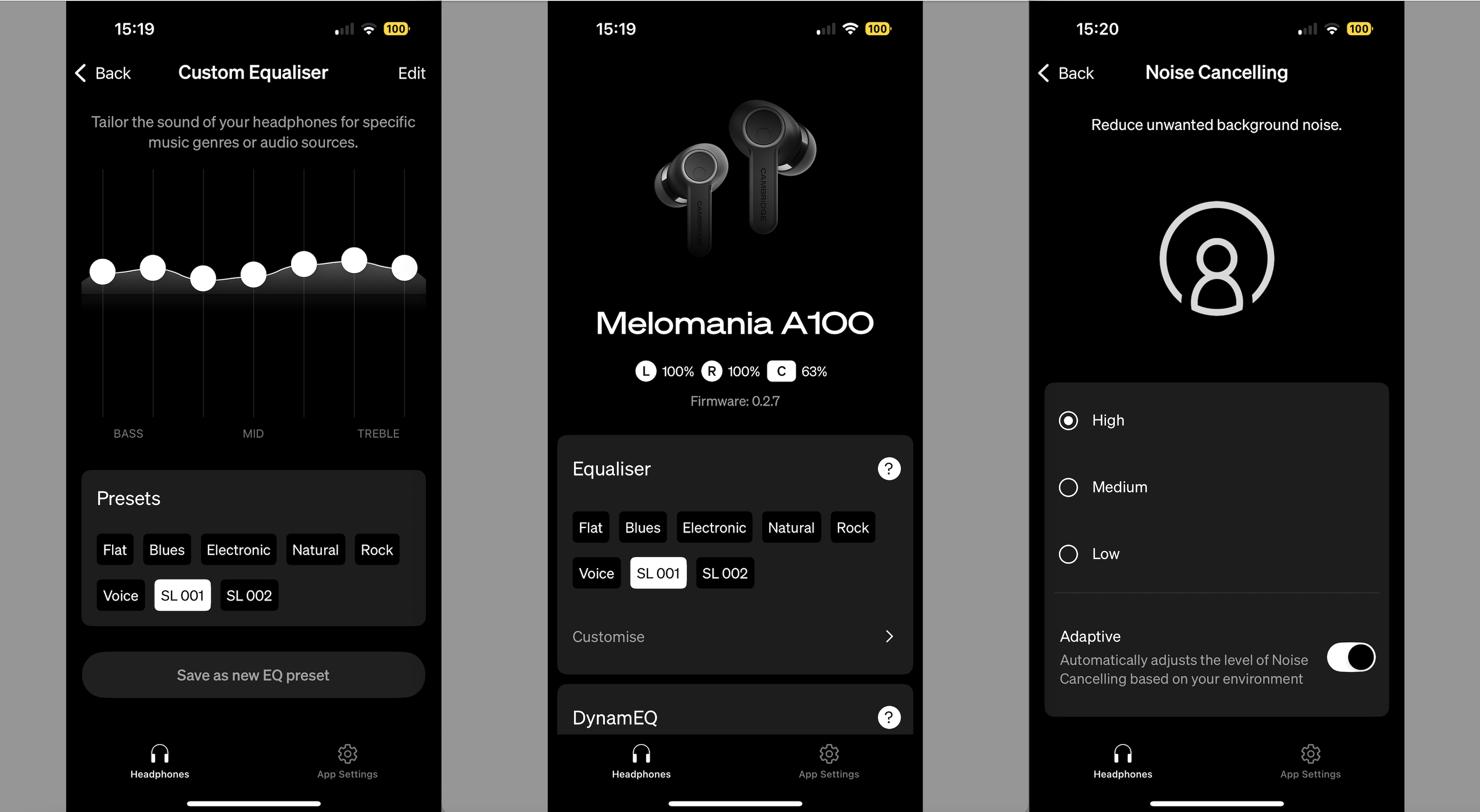
In the most advantageous circumstances (volume down, ANC off and so on) the earbuds will run for a healthy 11 hours between charges, and you can eke out as much as 39 hours when the power in the charging case is taken into account too. Charging from ‘flat’ to ‘full’ takes around 70 minutes, and just 10 minutes on the mains power (there’s a USB-C slot on the case) should hold you for over three hours of playback (provided you keep that ANC switched off).
And because portable products like this need a degree of hardiness, of course, the A100 are IPX5-rated. Which means they should be absolutely fine in any realistic environment.
- Features score: 5 / 5
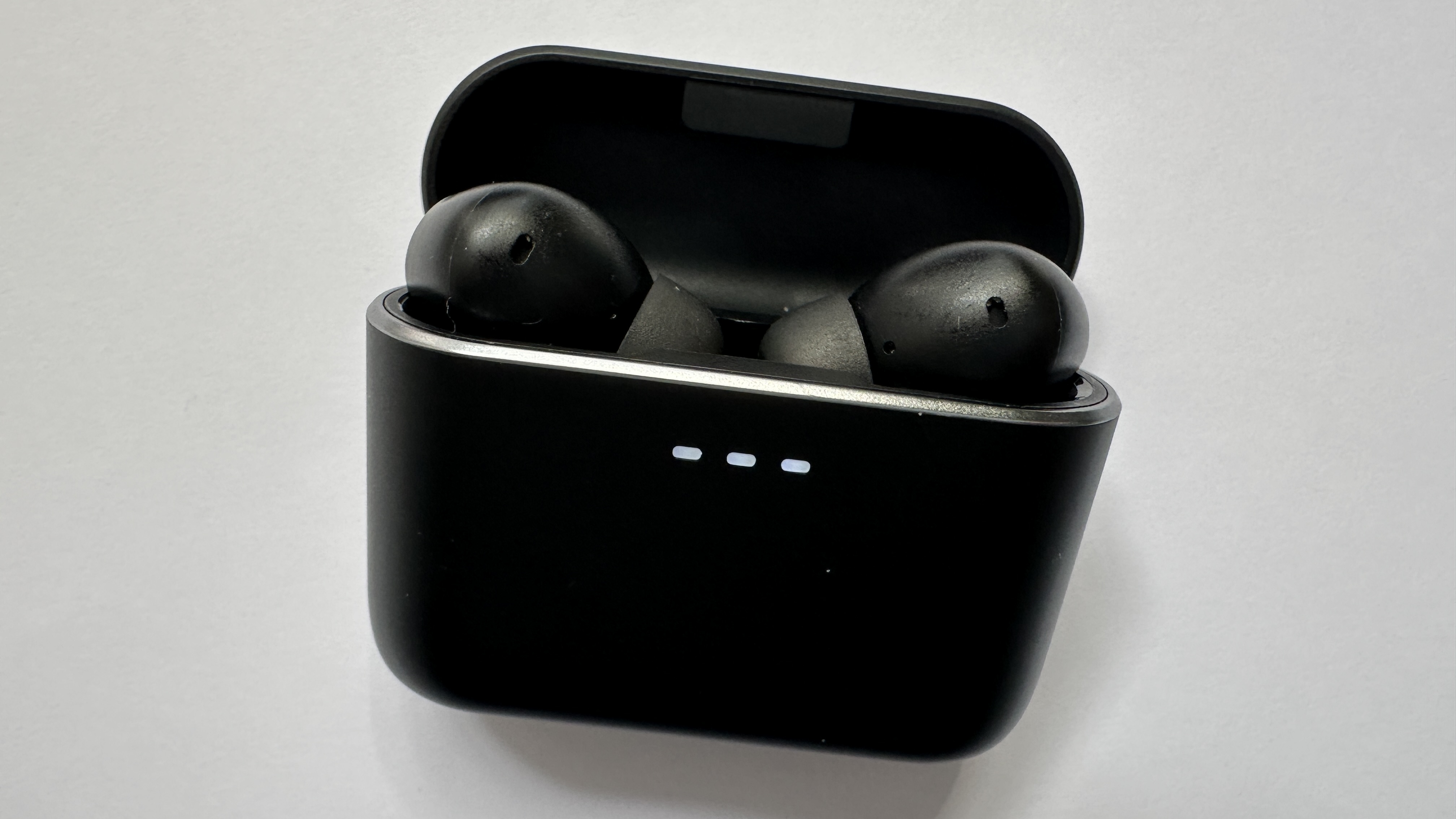
Cambridge Audio Melomania A100 review: Sound quality
- Energetic and entertaining sound
- Detailed and dynamic in equal measure
- Some trifling low-end integration issues
The temptation that’s been succumbed to by any number of true wireless in-ear headphones of similar price to the Melomania A100 is to ramp up low frequencies in the name of ‘excitement’ and let the idea of ‘balance’ go out of the window. This Cambridge Audio product, though, is a bit more sensible than that – and as a consequence, it’s ultimately a far more accomplished listen.
Leave the EQ settings in the app well alone and the A100 are quite neutral where tonality is concerned and have an almost ideal frequency response. High frequencies have bite and shine during a listen to Daniel Avery’s Diminuendo, but have sufficient substance and variation to prevent any suggestion of hardness or edginess. And at the opposite end of the frequency range there are similarly high levels of detail, and control that’s sufficient to allow very decent rhythmic expression. Bass sounds punch with determination, but their speed and variation means they never drag at the momentum of a recording.
Switch to a file of Last Night by Arooj Aftab and the midrange is revealed to be open and eloquent – the A100 can communicate a voice’s character and attitude in the most direct manner. Detail levels are, as elsewhere, impressively high, and there’s real positivity to the way the A100 ties the frequency range together. In absolute terms it could be argued that the lowest frequencies sound just slightly remote from the lower midrange and everything above that, but the commonality of their tone mitigates this quite significantly.
The soundstage the Cambridge Audio can generate is large, well-defined and carefully controlled – so even an element-heavy recording like Gershwin’s Rhapsody in Blue as performed by the New York Philharmonic under Leonard Bernstein sounds open and carefully laid out. There’s elbow-room for every performer and a fairly explicit description of relative on-stage positions.
There’s plenty of dynamic headroom available for when the orchestra really ramps up the intensity, and the dynamics of harmonic variation are carefully attended to during the solo piano passages too. Transient response is good, and the result is an overall presentation that sounds very much like the complete picture.
All of the above might serve to make the Melomania A100 seem rather analytical – and there’s no denying they can peer into a recording and return with all sorts of pertinent observations. But primarily they’re an engaging and entertaining listen, and a pair of earbuds that give the strong impression that they’re just as keen on your favourite music as you are. It’s by no means easy to combine ‘analysis’ with ‘entertainment’ so that each discipline is properly attended to – and that’s the case no matter how much you’re charging – so Cambridge Audio is deserving of both congratulations and admiration.
And where active noise-cancellation is concerned, the Melomania A100 can go toe-to-toe with the best of their price-comparable rivals. The system doesn’t alter the sound of the earbuds in any way, it doesn’t betray itself with counter-signal or any sort of audible disruption – and it does a very agreeable job on all but the loudest and/or deepest of external noises. There’s a second tier of ANC that sits below the uncanny silence that’s available from a pair of Bose noise-cancellers – and these Cambridge Audio earbuds are now a part of it.
- Sound quality score: 5 / 5

Cambridge Audio Melomania A100 review: Design
- 45 x 61 x 25mm, HxWxD (charging case)
- 4.7g (earbud)
- Choice of black or white finishes
Unlike previous Cambridge Audio true wireless models, the Melomania A100 are from the Apple-inspired ‘dangly stem’ school of design. The earbuds are notably neat and tidy and, thanks to a selection of eartip sizes and a trifling 4.7g weight, fit comfortably even for the longest listens. ‘Neat and tidy’ covers the charging case too, which is 45 x 61 x 25mm (HxWxD) – this slender design does mean the earbuds are slightly trickier to get out of the case than they otherwise would be, but it’s not much of a price to pay for such pocket-friendly dimensions. The standard of build and finish is impressive in every respect, and the look is good no matter if you choose the black or white finish.
I might as well go with the word ‘impressive’ to deal with operability here, too. The A100 have a capacitive touch surface at the top of the stem of each–- a combination of presses and holds gives control of most playback controls, and lets you cycle between your ANC options or summon your voice assistant too. Interactions are swift and reliable, and the ‘Melomania’ control app gives the chance to customise the effect each sequence of presses or holds has.
The control app also has decent extended functionality. Six EQ presets are joined by a seven-band equaliser that allows you to store quite a few custom settings, while a defeatable ‘dynamEQ’ setting does its best to maintain full-range response at lower volumes. You can select between ‘transparency’, ‘normal’ and ‘noise-cancelling’ for ANC, and within this last option you can choose between ‘low’, ‘medium’ or ‘high’. Switching for ‘gaming mode’, ‘wear detection’ and ‘sleep mode’ are all available too – and within ‘audible feedback’ there’s the greatest Easter egg in any app anywhere ever. ‘Off’ and ‘tones’ are both options, and there are eight different languages to choose from too… but the eleventh option (‘Southwark’) lets your audible feedback be delivered by Matt Berry in highly fruity fashion.
Even without this delightful touch, though, ‘Melomania’ is a useful, stable and easy-to-navigate control app that’s only missing the ability to integrate music streaming services to be completely ideal.
- Design score: 5 / 5
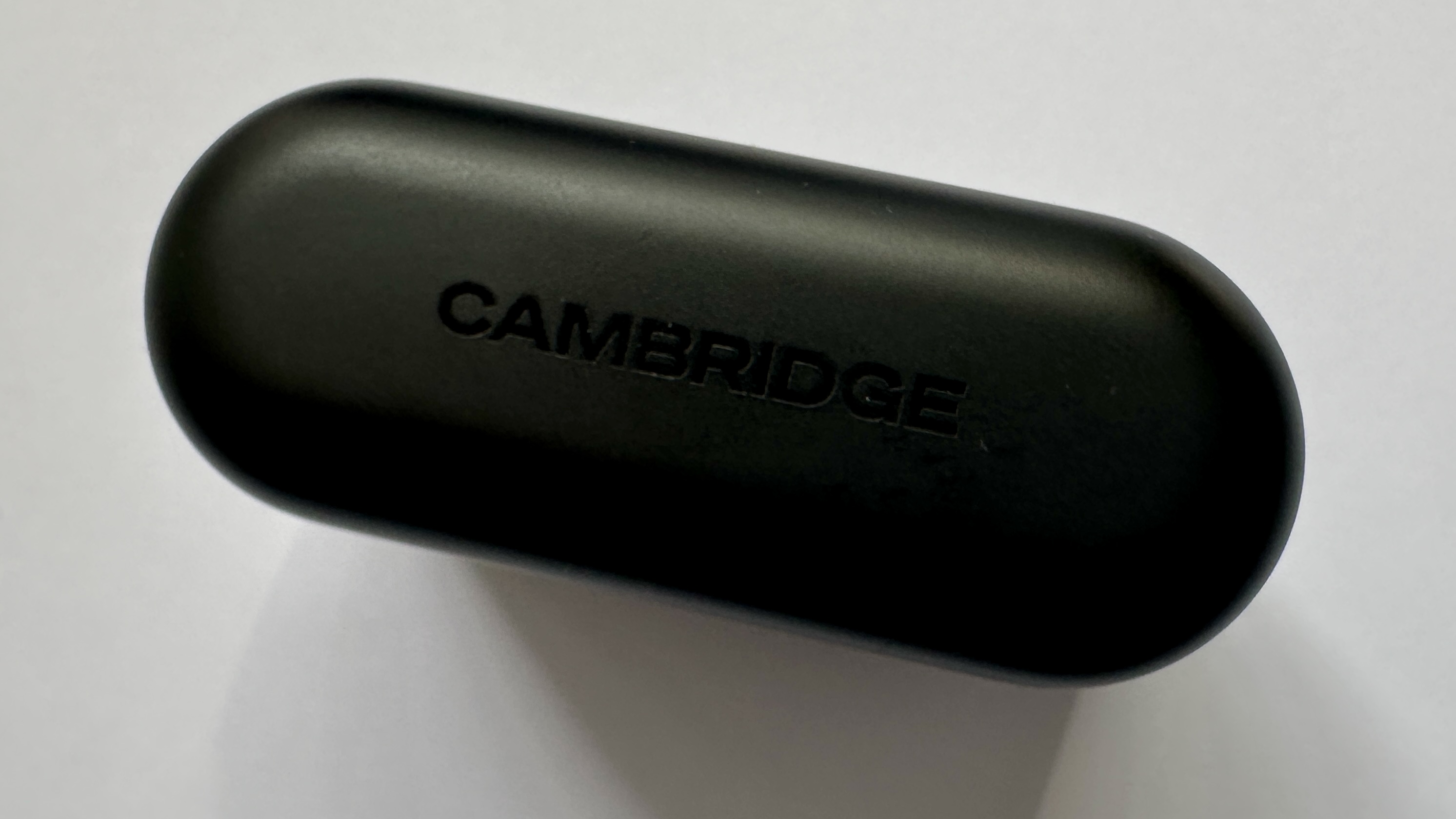
Cambridge Audio Melomania A100 review: Value
- Great specification
- Secure ergonomics
- Excellent sound quality for the money
With the Melomania A100, Cambridge Audio has hit it so far out of the park it’s basically lost forever.
These true wireless earbuds are specified well beyond what any price-comparable alternative can offer, they’re comfortable, have battery stamina on their side, and each of their control options is well-implemented and effective. Oh, and they sound as good as anything else you can buy at anything like this money. Currently they offer the best value for money of any wireless earbuds you can buy for $149 / £119 – and by a wide margin.
- Value score: 5 / 5
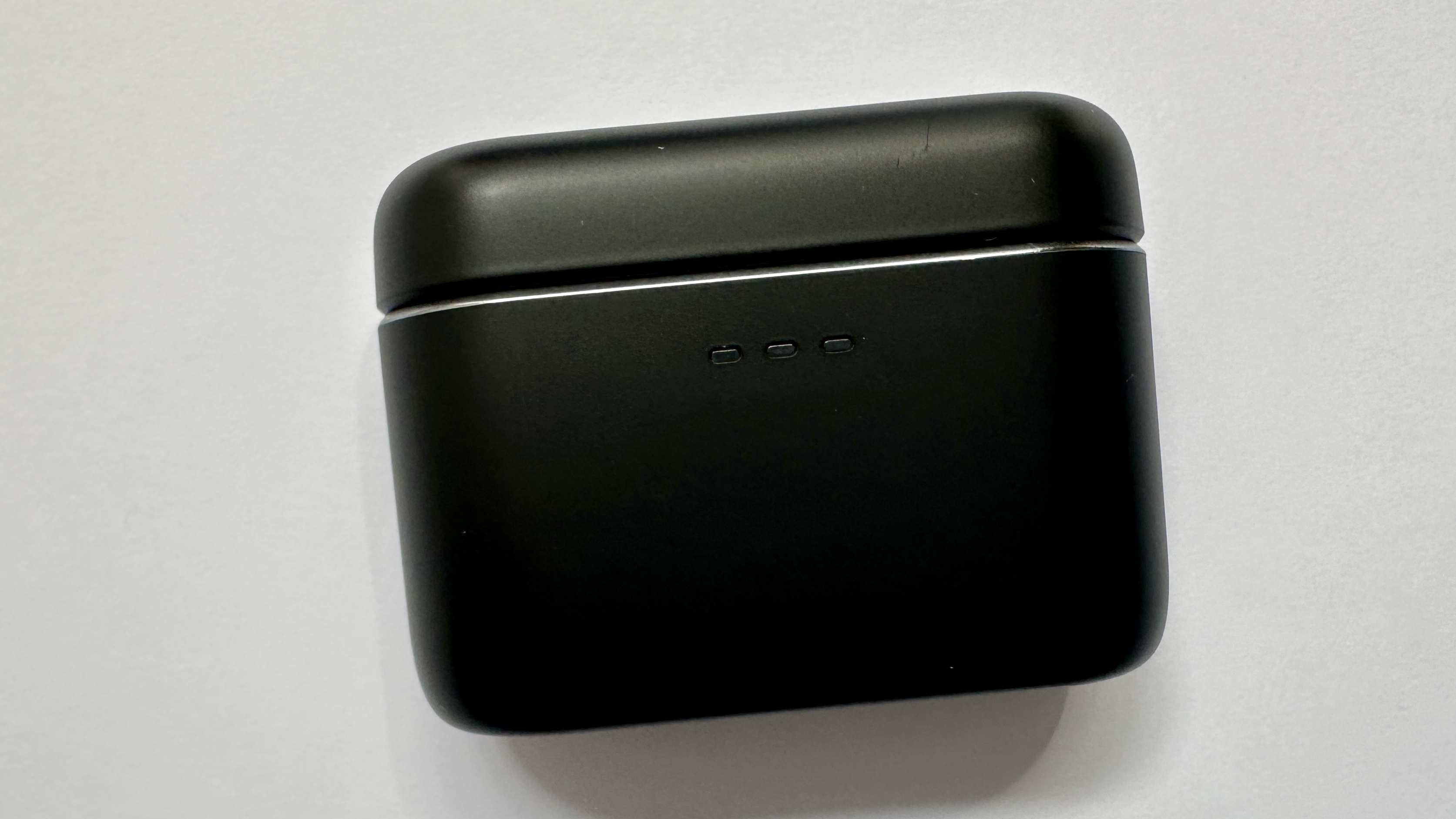
Should I buy the Cambridge Audio Melomania A100?
Section | Notes | Score |
|---|---|---|
Features | Excellent codec support; geat mic array | 5 / 5 |
Sound quality | Stunning clarity for the money – best at the level by some degree | 5 / 5 |
Design | Solid, ergonomic, thoughtfully made | 5 / 5 |
Value | The best sound-per-pound wireless design on the market | 5 / 5 |
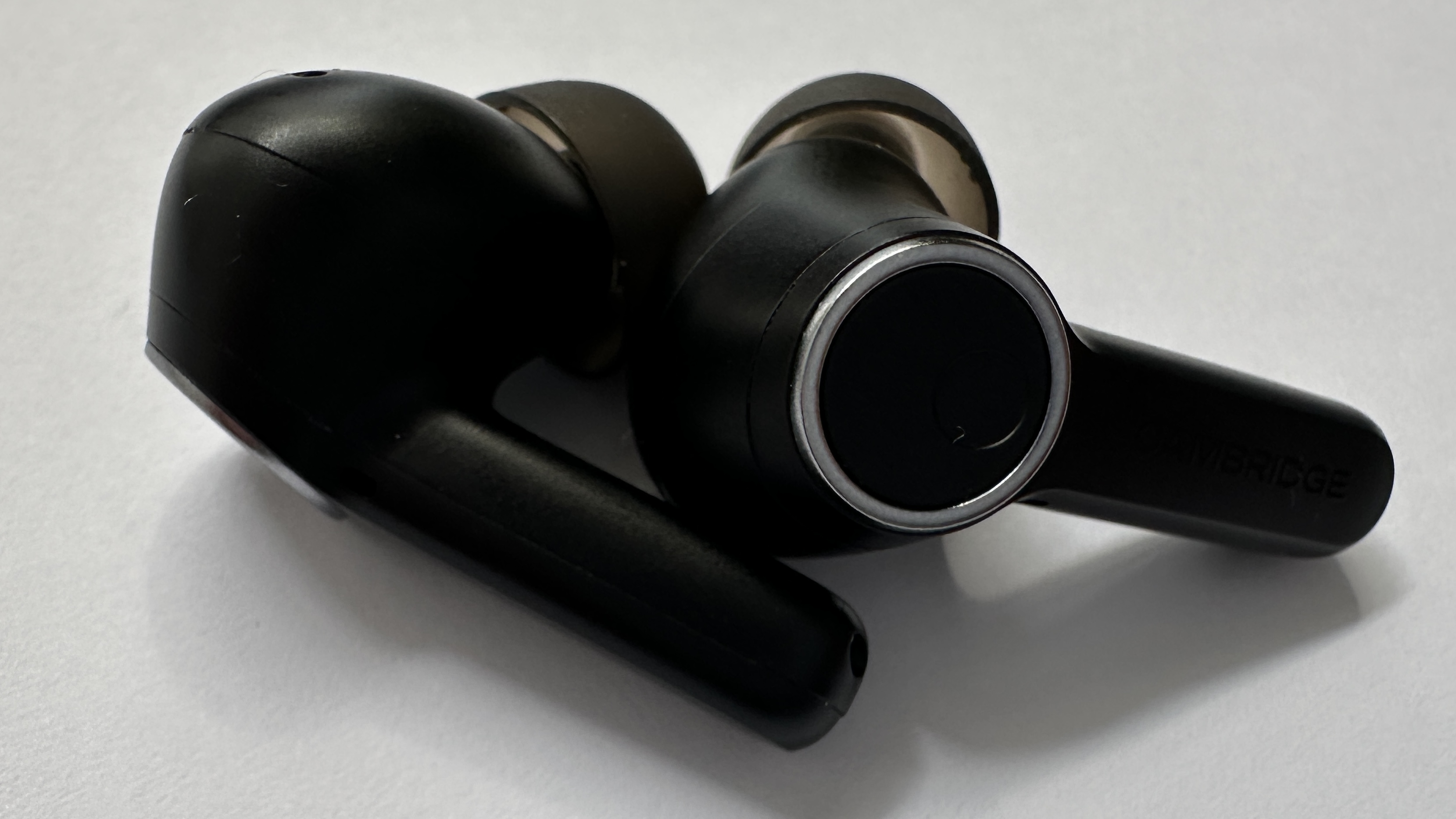
Buy them if…
You have a good source player
Top-end codec compatibility and exemplary sound quality make the A100 the perfect partner
You favour well-tailored clothes
The charging case is about as slim and easy to carry as these things ever get. So you won’t need to compromise your outfit
You enjoy added value
If you know who Matt Berry is, then you know his appearance as an ‘audible feedback’ option will prove endlessly satisfying
Don't buy them if…
You like properly extended functionality
If you want your heart-rate monitored, your steps counted and what-have-you, there are alternative designs that have you covered
You’re not a monochrome type of person
Lots of price-comparable rivals are available in many more finishes than just ‘black’ or ‘white'
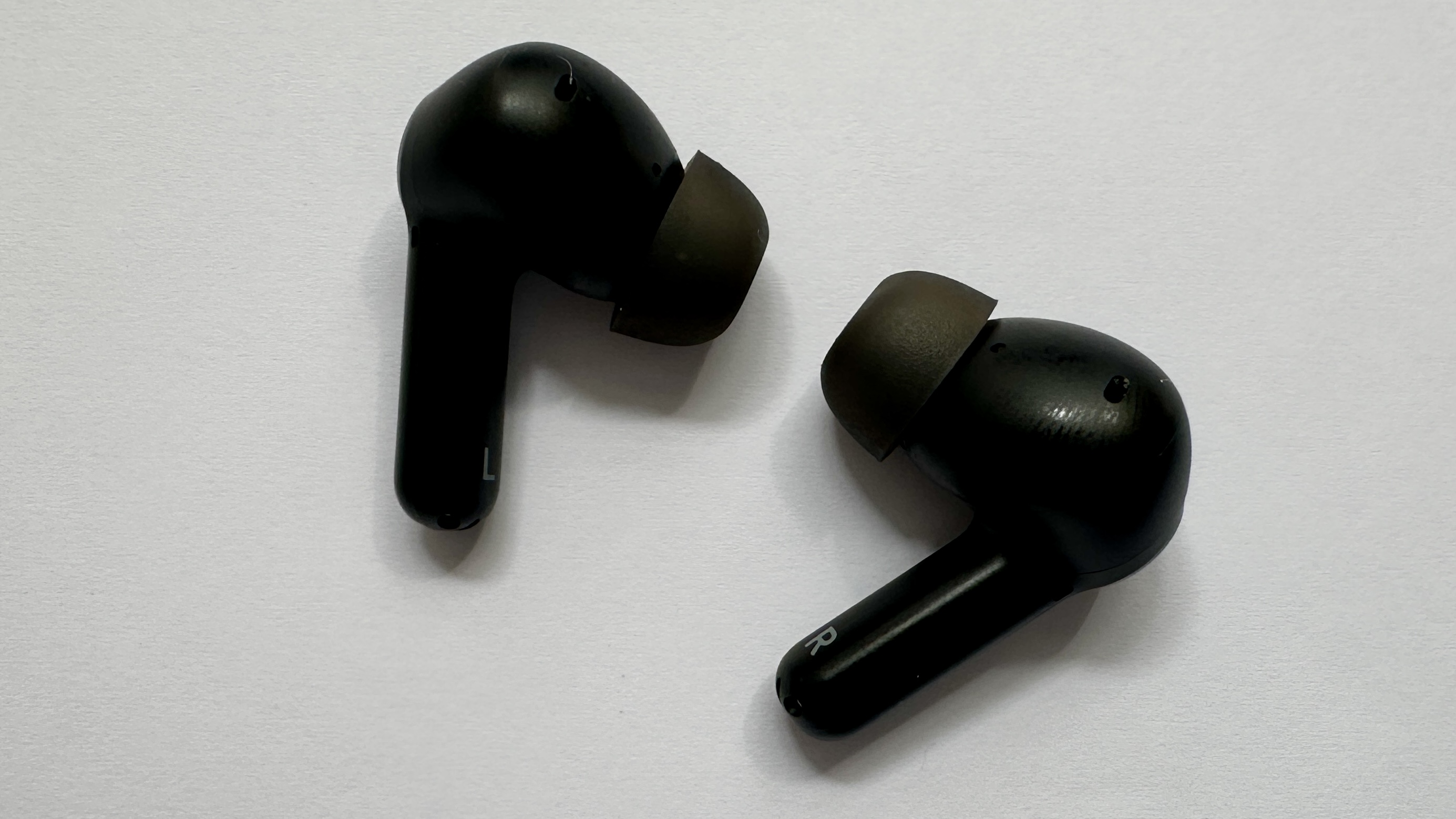
Cambridge Audio Melomania A100 review: Also consider
Sony WF-C710N
Until the start of this review, Sony’s still-excellent WF-C710N were your default £100-ish TWS choice, and they still have plenty going for them where sound quality is concerned. They’re made to look a bit limited by the A100’s spec-sheet, though…
Read our full Sony WF-C710N review
Technics EAH-AZ80
…And Technics’ slightly older flagship AZ80 might come down a bit closer to this pricing now too (owing to the arrival of their newer AZ100 siblings), but they're nowhere near it yet. The feature set and fit is fantastic, but you're still paying a lot more…
See our full Technics EAH-AZ80 review
How I tested the Cambridge Audio Melomania A100
- Connected to an iOS smartphone and an Android DAP
- Using a variety of digital file types and sizes
- In a number of environments
Naturally, iOS devices don’t acknowledge wireless sound quality beyond the AAC codec – but happily my FiiO DAP does, and so I was able to let the Melomania A100 show what they’re capable of when it comes to optimum sound quality.
The DAP also features lots of genuinely high-resolution content on its local memory, as well as duplicating the music streaming service apps loaded onto the Apple smartphone, so I was able to listen to different digital audio file types and sizes.
I did this indoors and outdoors, in very quiet environments and in places where even the best active noise-cancellation struggles – and I did so for well over a week, because listening to these Cambridge Audio earbuds is really no kind of hardship.
First reviewed: June 2025
Simon Lucas is a senior editorial professional with deep experience of print/digital publishing and the consumer electronics landscape. Based in Brighton, Simon worked at TechRadar's sister site What HiFi? for a number of years, as both a features editor and a digital editor, before embarking on a career in freelance consultancy, content creation, and journalism for some of the biggest brands and publications in the world.
With enormous expertise in all things home entertainment, Simon reviews everything from turntables to soundbars for TechRadar, and also likes to dip his toes into longform features and buying guides. His bylines include GQ, The Guardian, Hi-Fi+, Metro, The Observer, Pocket Lint, Shortlist, Stuff T3, Tom's Guide, Trusted Reviews, and more.
You must confirm your public display name before commenting
Please logout and then login again, you will then be prompted to enter your display name.
